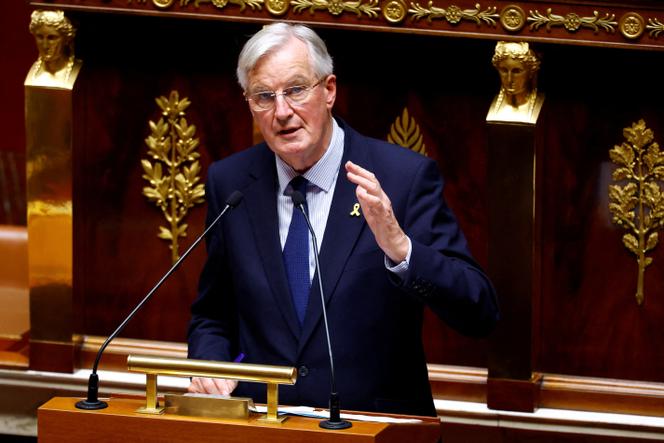


New French Prime Minister Michel Barnier faces a major test on Thursday, October 10, as he presents a deficit-slashing draft budget to his cabinet before submitting it to a largely hostile parliament.
Barnier, who has been in the job only since last month following an inconclusive general election, this week survived a no-confidence vote brought by left-wing MPs, who feel they should have had their prime ministerial candidate appointed to govern by President Emmanuel Macron, instead of the conservative Barnier.
Yet despite handily seeing off the opposition in that vote, Barnier remains threatened by the possibility of left-wing and far-right MPs teaming up in the future to force the government to step down in another no-confidence vote.
France's annual budget plan debate has often triggered no-confidence motions and what is known of Barnier's plan has already sparked vocal opposition.
"This is the most violent austerity plan that this country has ever seen," said Manuel Bompard, a lawmaker for the far-left LFI party. "It will cause French people to suffer."
The government, under pressure from the European Commission to bring France's sprawling deficits and growing debt under control, has already said it will improve its budgetary position by €60 billion ($66 billion), €40 billion of which would come from spending cuts and €20 billion from tax increases on high earners and some companies.
The efforts asked would be "fair" and "balanced," Barnier said Thursday. He has argued that France has little wiggle room left, as it risks a downgrade from debt rating agencies, an excessive deficit procedure by the EU Commission and a risk premium on new debt issuance demanded by investors.
France already pays a higher debt premium than Spain, and is edging closer to the high-risk yields demanded of Italy and Greece.
Most of the spending cuts will focus on direct government spending, followed by social security and public healthcare spending. In addition to raising income tax and corporate tax for some, the government is also likely to charge higher levies on owners of polluting vehicles and on the aviation sector.
France's employers association Medef has already complained of looming reductions in state help for companies hiring low-wage workers, saying "hundreds of thousands of jobs" were at risk.
Barnier has promised, however, to spare "the most vulnerable" from higher taxes, and "those who work." He is hoping to bring France's public-sector deficit to below 5% of gross domestic product (GDP) next year, from an expected 6.1% in 2024. The government hopes that in 2029 it will drop to below 3%, the EU members' agreed deficit ceiling.
If the opposition parties in parliament come out against the budget draft law, the government has the option of forcing it through without a vote, under Article 49.3 of the French Constitution. Yet this would open the door to another no-confidence vote, putting Barnier at the mercy of the opposition yet again.
